On Jan. 20, residents of Waterloo Region joined together at Kitchener City Hall for the second annual Women’s March. The event started last year as a way to protest the chauvinistic precepts of newly elected U.S. President Donald Trump. Held the day after his inauguration, it immediately turned into a global resistance against misogyny’s many tentacles; not solely fighting for women’s rights around the world, but for numerous other disenfranchised groups of people.
That message was echoed this time around by organizers of the KW march, with an opening speech by emcee, Sarah Wiley, who highlighted the point that women’s rights are human rights, that the march is less about cisgender white women and more about intersectional feminism and that the majority of us residing in Waterloo Region are trespassing on the traditional territory of the Haudenosaunee, Anishinaabe and Neutral peoples.
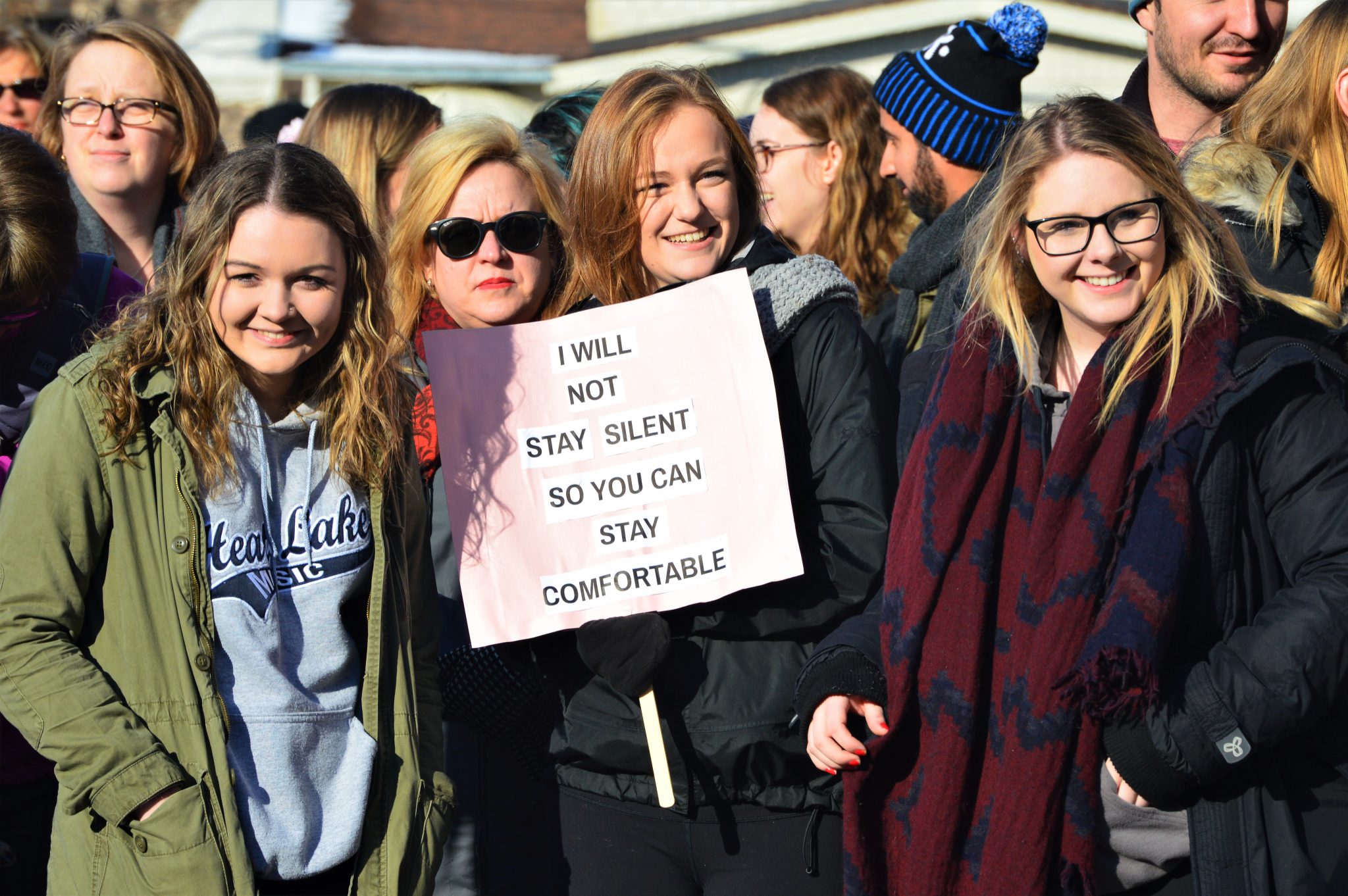
Although Trump still remains in power, we have experienced a major shift towards female equality in a year’s time. The #MeToo movement has led a big part of that charge this year, as people used social media as a platform to disclose that they had been survivors of rape, sexual abuse, or other forms of sexual harassment. It was a watershed response to the various people working in Hollywood who came forward about Harvey Weinstein’s multitudinous accusations of alleged sexual assaults and has led to the calling out of many other men working in media.
As much as survivors of sexual violence have gained some hard-fought ground, however, it’s important to know that it’s still mostly those in places of privilege who benefit.
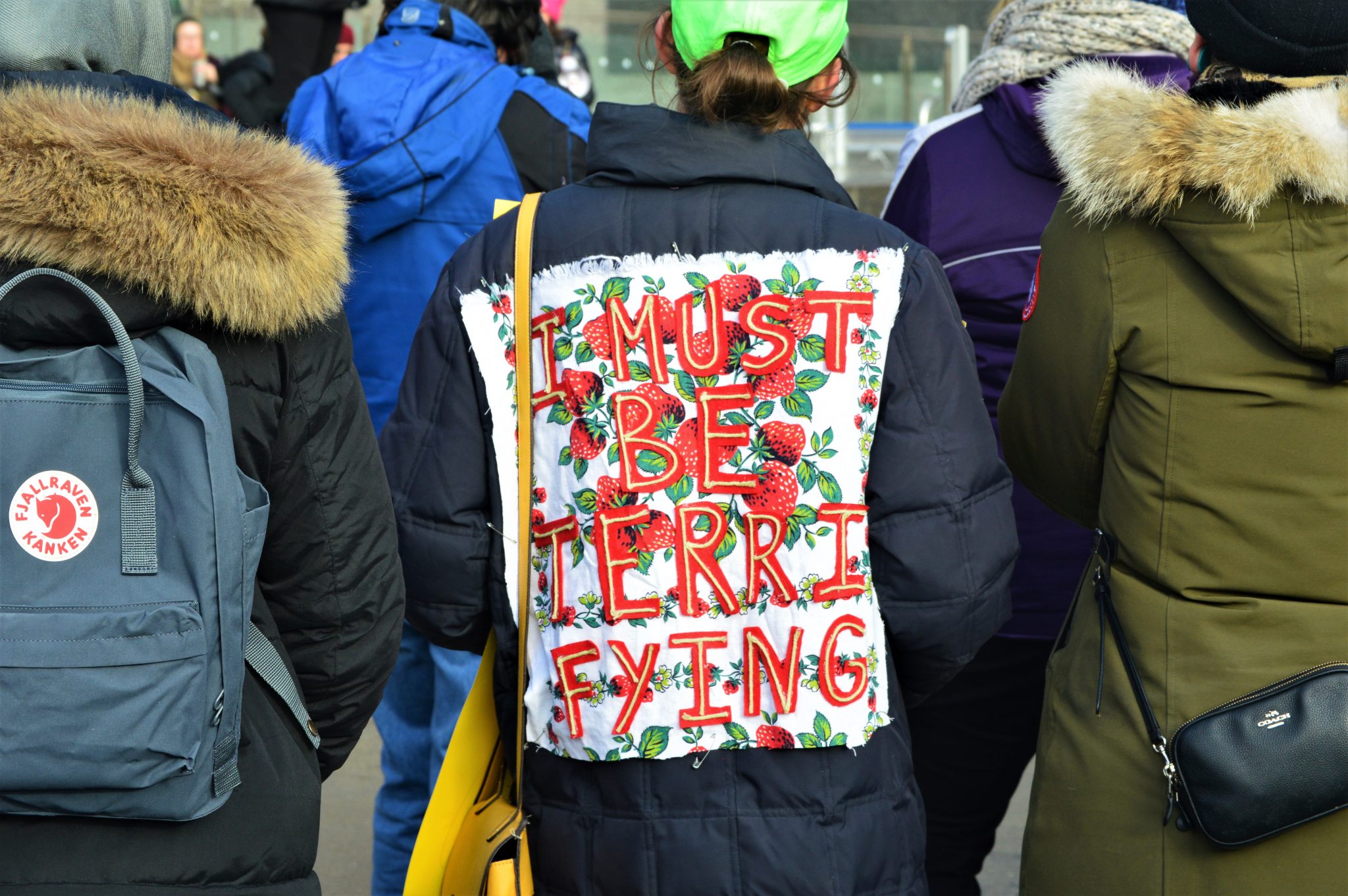
“For many reasons, those that identify as transgender and/or non-binary, women of colour or living with disabilities, sex workers and others will not be able to participate [in the #MeToo campaign],” Joan Tuchlinsky, public education manager at the Sexual Assault Support Centre (SASC) of Waterloo Region said
“The fact that so many white cisgender women’s voices were needed to draw attention to the wide spread problem of sexual harassment and assault demonstrates the ongoing issue of marginalized voices not being heard,” she added.
She brought up another uncomfortable point that the contemporary #MeToo movement was actually preceded by Tarana Burke, an African-American civil rights activist and non-profit leader who created the original “Me Too” movement back in 2006, as a way for women to show solidarity with each other.
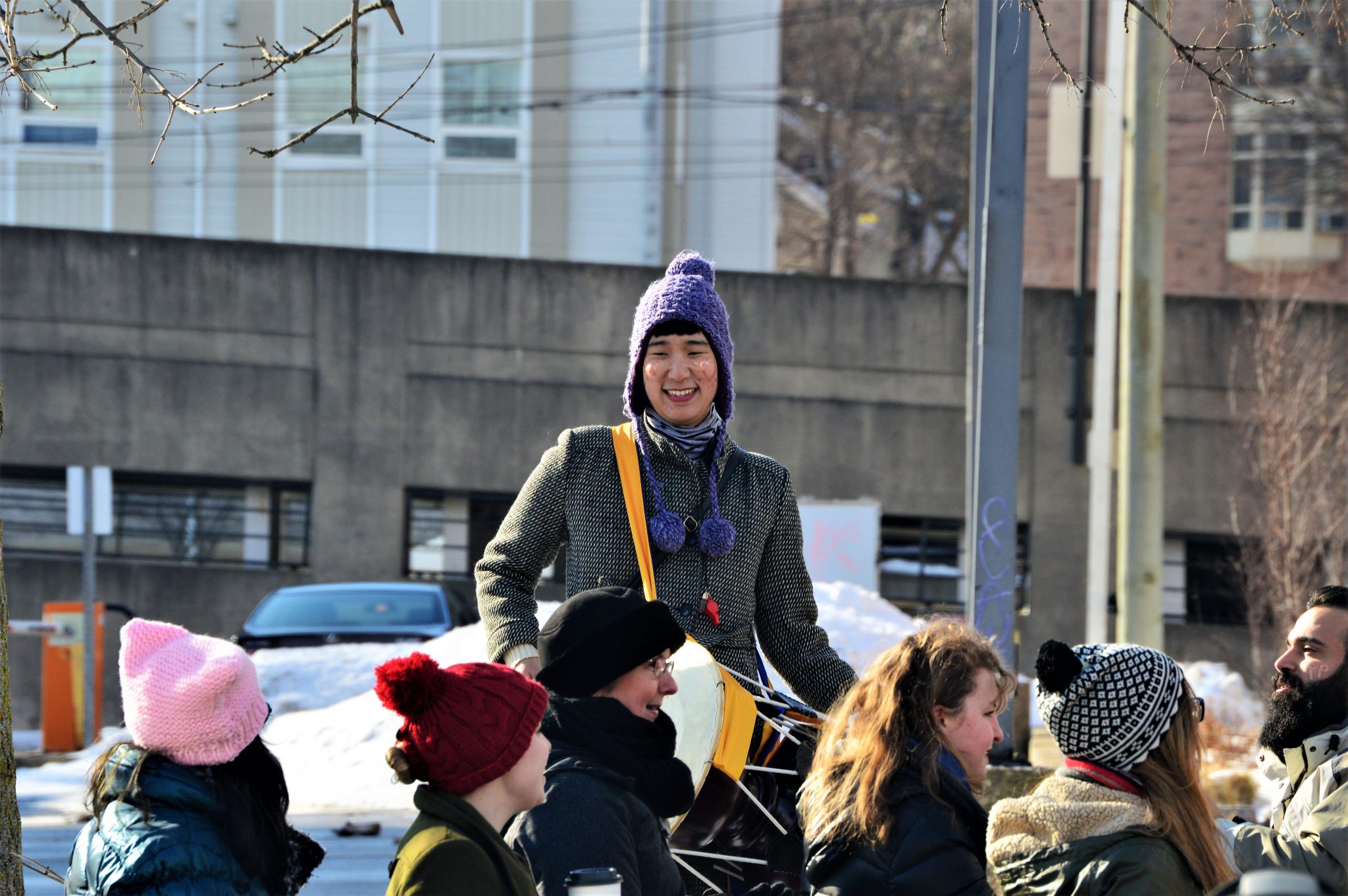
While the campaign has its flaws, Tuchlinsky supplemented this with a positive, stating that SASC has experienced double the number of calls to their support line, as well as calls for counselling when stories first broke about Hollywood sexual harassment and the 2017 #MeToo campaign began.
“Some of the calls are about recent incidents but the majority are historical,” she said.
This is an important step forward since women are, according to Stats Canada, still 11 times more likely to be victims of sexual violence, with marginalized female groups at an even higher risk.
While these are considered “women’s issues,” Tuchlinsky pointed out that there are ways in which men can address and participate.
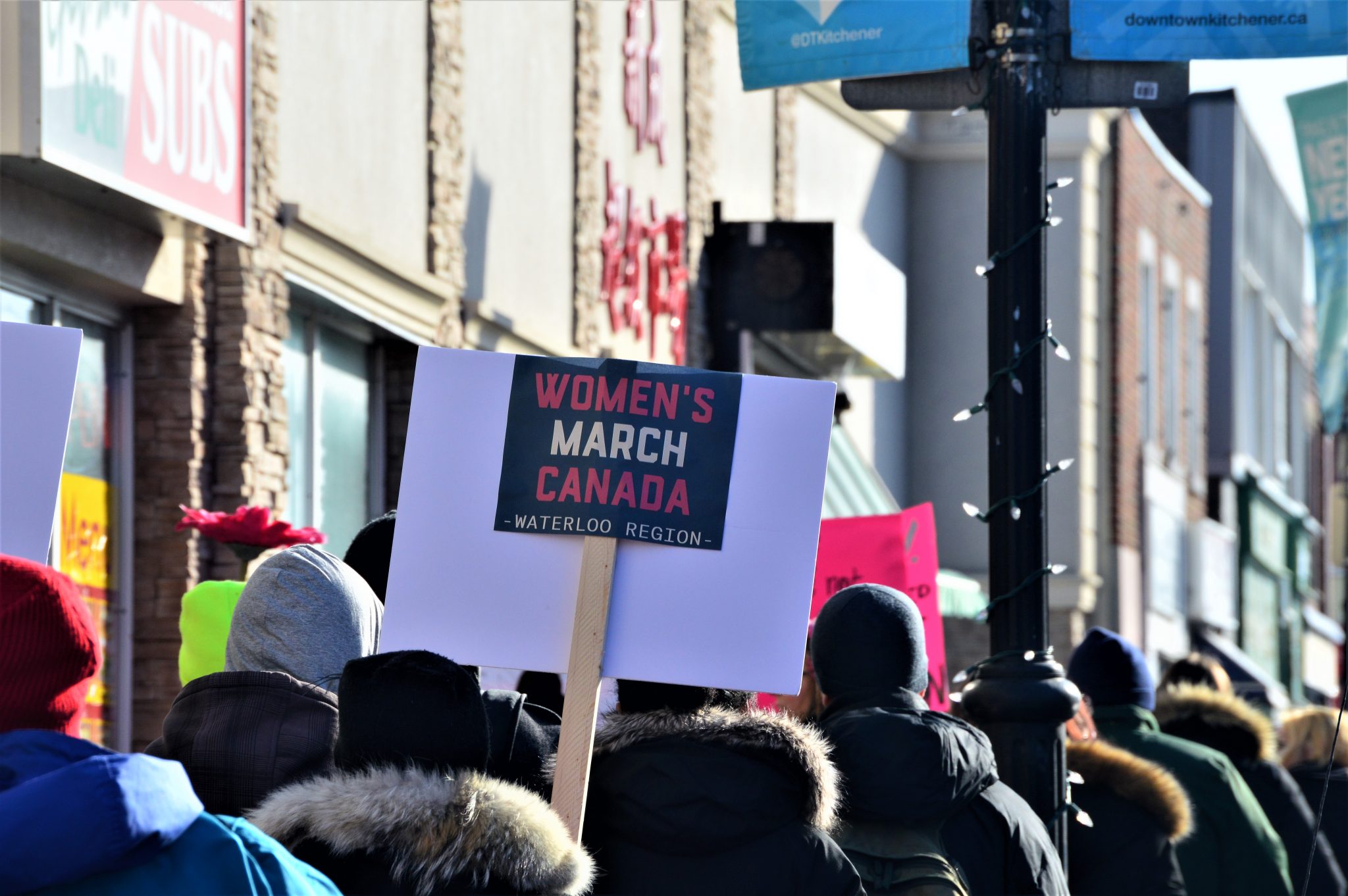
“This is the focus of our Male Allies program which understands that male-identified persons have a unique role and responsibility to end gendered violence. By using activities such as the Continuum of Harm to educate and inspire conversations, boys and men can understand that not only is their catcalling, jokes and other behaviour inappropriate, they are harmful.”
Men are placed in socially restrictive boxes under the patriarchy, as well, and often believe they must adhere to specific gender norms and conform to toxic masculine stereotypes.
“Ending systemic and everyday forms of gender-based violence begins with an understanding of what it means to be a man in society today,” Wil Fujarczuk, program educator at Male Allies, said.
“‘Not being a perpetrator of gender-based violence’ is a low bar and the silence of those often labelled as ‘good men’ is complicity.”
And while there were a few men rocking the pink pussy hats at the march, I get the sense that some men aren’t really sure how to deal with all this “I am woman, hear me roar!” stuff. Some of them might even be a bit scared that they are living in some wild witch-hunt of angry feminists looking to castrate anyone that looks at them the wrong way.
Fujarczuk, didn’t think that needs to be the case. “If there’s a feeling of discomfort or worry, let’s look within ourselves to understand where that feeling is coming from … It’s important for men to listen: read articles, listen to stories.”
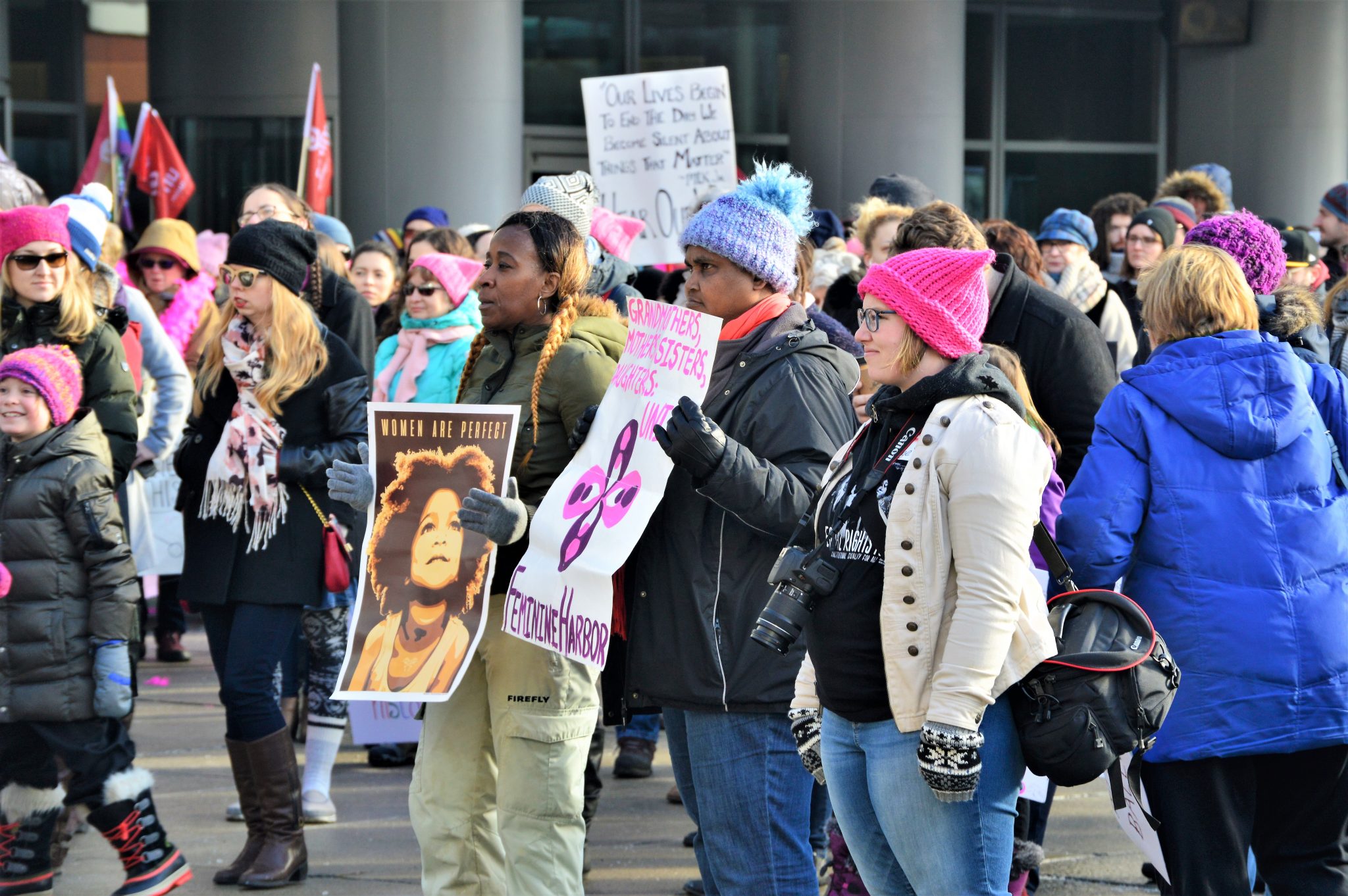
Just as this kind of dialogue hopes to add male voices to the discussion of sexual violence, the march aims to be inclusive, as well. The group that I walked with from Kitchener City Hall to the Kitchener Market was not solely comprised of women, nor only of “hardcore activists” — a trope that remains problematic.
While the numbers were obviously less than a major city like New York, I was very proud to be one of the approximately 500 people that demonstrated peacefully through the streets of downtown. The chants, speeches and drum beats were mixed with big smiles, selfies and group hugs. It was an uplifting event that strives to benefit the community as a whole.
But let’s acknowledge those who were unable to participate because of various barriers, or women who feel that the march does not represent them. While grassroots movements can be positive ways to spark change, the voices of those who aren’t able or don’t want to join in are the ones we need to listen to the most.
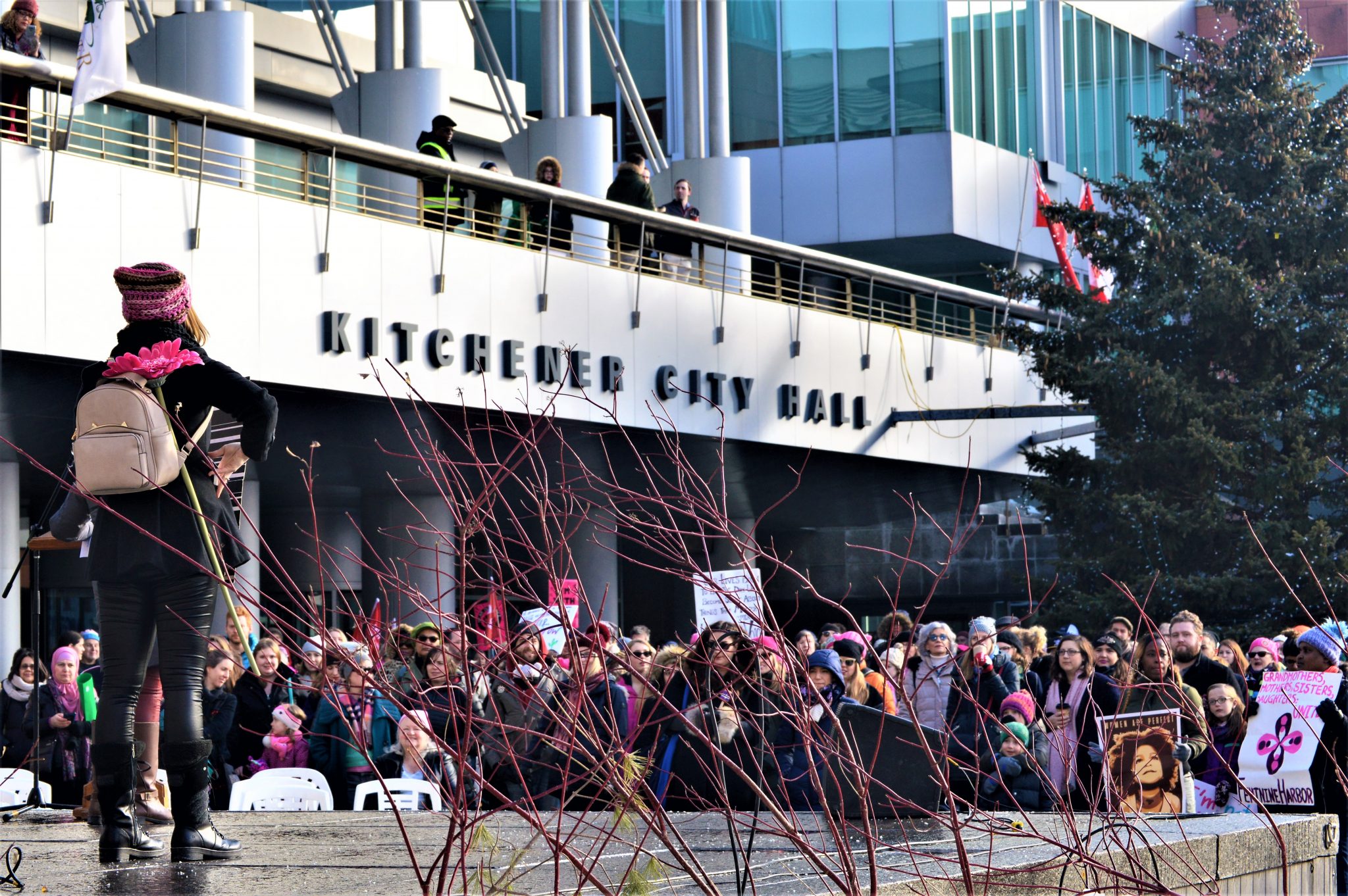



Leave a Reply